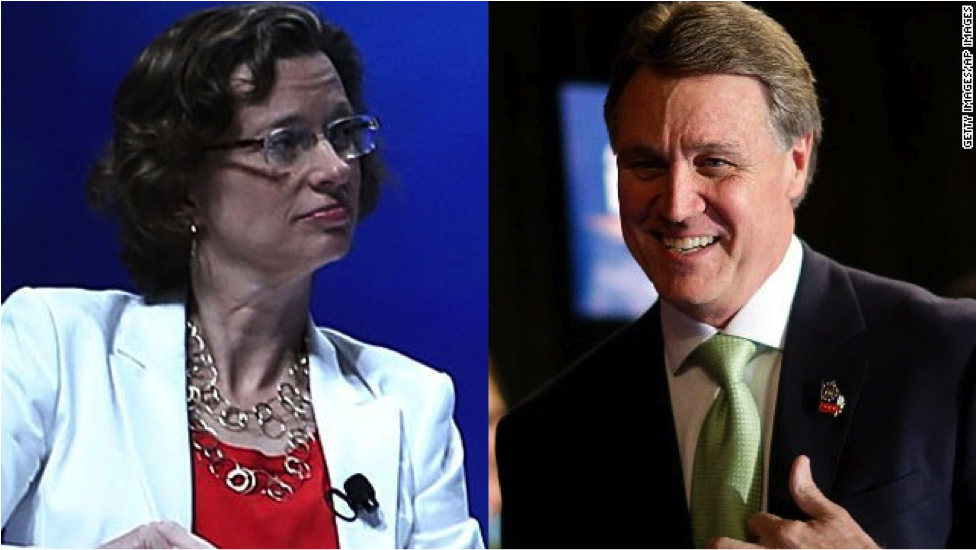By: Rob Oldham
As the 2014 Georgia election cycle approaches, all eyes are on the race to replace Saxby Chambliss as a member of the world’s most exclusive club: the U.S. Senate. The candidates have begun pleading with contributors to open their pocketbooks for the upcoming June primary where the likely GOP frontrunners Phil Gingrey, Jack Kingston, and Paul Broun will duke it out to represent their party in the general election. Among these four candidates alone, there is an estimated $4.4 million in recently raised funds. Corporations affiliated with agribusiness and health professionals are among the largest contributors to the funds of GOP faithfuls Kingston and Gingrey. They are the largest cash magnets as of yet; both members of U.S. House of Representatives have around $2.5 million on hand. With the Senate divided 54-46 in favor of the Democrats, funds are sure to cascade in for the ambitious Republicans who aim to control the entirety of Congress come January 2014. The general election being well over a year away (and the bulk of cash contributions with it), each candidate could very well hope to approach the atrocious $18.4 million that Chambliss raised in his exorbitant 2008 re-election bid. To put that amount in perspective, $18.4 million dollars is almost 263 times as much as the average American income in 2010.
Why is this massive influx of cash necessary in American politics? Billions of dollars are spent during election cycles on advertising, rallies, volunteers, and organization in order to make sure that constituencies are familiar with the names of each party’s candidates. The $700 million raised for 2012 Senate campaigns would have appalled Thomas Jefferson, who strictly favored government by the educated, not the wealthy elite. Alexis de Tocqueville eloquently writes of “the general equality of conditions” in America as being the focal point of a flourishing and proud society. Millionaires now dominate our legislative and executive branches. The average personal income is over $11 million for a senator and over $6.5 million for a representative. These figures are just estimates because? Your choice here current laws permit members of Congress to vaguely report their net worth.
It appears that public service at the federal level has become inaccessible to the common man. Vast amounts of campaign cash and personal wealth are seemingly prerequisites. Recent Supreme Court decisions have used free speech protections in the Constitution to facilitate the money flow to the candidates that have the backing of minority interests. The famous Citizens United v. Federal Election Commission decision in 2010 removed spending restrictions on independent entities (which in reality are closely associated with candidates) during campaigns. The practical consequences of this case are debatable since many political scientists believe that campaigning does not make a significant difference in many elections. But the principles it upholds are right in line with the daunting trend of large money candidates being the only ones who receive serious consideration in federal elections.
The concern that reforming campaign finance violates free speech protections is justifiable. As Justice Anthony Kennedy noted in the majority opinion for the Citizens United decision, individuals have a right to organize themselves for a political cause and express their support for a candidate. But should free speech protect the extent to which money has permeated into our electoral system? At a certain point the domination of elections by the rich and powerful becomes wholly undemocratic, leading to an unrepresentative republic that undermines the very idea of liberty that free speech is supposed to protect. Our electoral system may not have crossed that bridge yet, but there is consistent movement towards what some fear is domination by the elite classes.
Congress has several options to curb the influence of spending on our government’s elections (provided they have any incentive to do so). Article I Section 4 of the Constitution provides for federal regulation of the times and manner of congressional elections. Federal supremacy of election regulation was further cemented in the 2012 Supreme Court decision Arizona v. Inter Tribal Council of Arizona, where it was held that Congress’s laws have precedent over any passed by the states. The tricky part is to convince 535 representatives of the people that they should abandon the influx of money that directly benefits them and allows an entrenchment of power. A previous effort, the Bipartisan Campaign Reform Act in 2002, was strong on restricting money raised by political parties but failed to address 527 groups that exploit loopholes in the tax code to continue the funneling large amounts of money to candidates.
So the question comes to this: how much of our freedom to spend on our favored candidates should we give up in order to secure a more democratic election process? This is certainly a complicated, even somewhat philosophical issue, but reforms to interest group donations, lobbying, public election finance, and total expenditure limits would lead to more autonomy for the bulk of Americans. The money-influenced slant of politics could be abated as more of our representatives let their constituents and their own good sense influence their legislation rather than the minority interests that have been gnawing their way to the taxpayer dollar trough for years.
The 2014 Georgia Senate race promises to be chocked full of donations from corporations and interest groups. All three major GOP candidates have strong ties to corporations, trade unions, and the famous issue-oriented donors David and Carl Koch. While a quid pro quo relationship between our elected officials and their financial benefactors is unfair to assume, the convergence of our candidates policy positions with those advocated by large money donors is imprudent to dismiss.
Congress’s current polarization must also be considered. Are GOP hardliners who have lined their pockets with donations really who we want in office? Kingston, Gingrey, and Broun all vote along party lines close to 90 percent of the time. But choices for our leaders are increasingly limited. Until there is major reform in campaign donations and the nature of the process we use to choose our leaders, the most noticeable candidates will continue to be those with the most money. This tragedy of our republican system of government must be addressed as we head on to face issues such as the federal debt, foreign wars, and a worldwide energy crisis. Only with effective and independent leaders will we able to face down our demons in a responsible and wholly American way.

